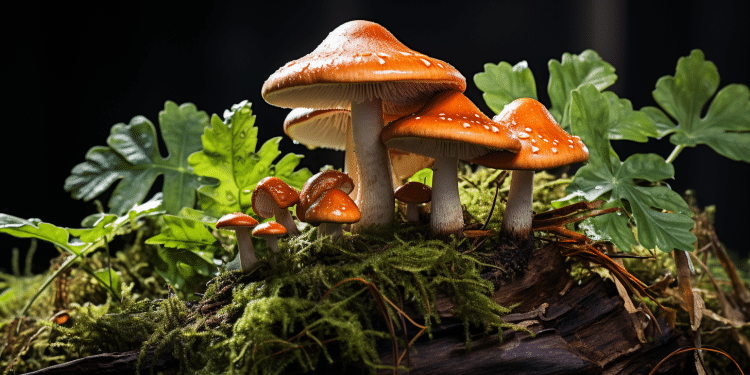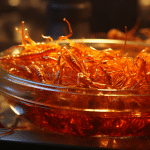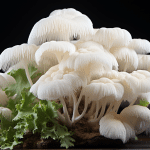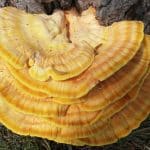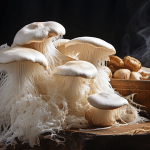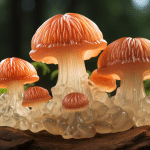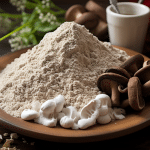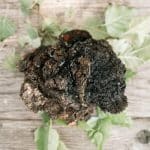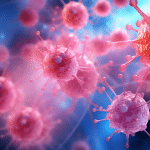If you use fresh mushrooms frequently for added flavor and nutrition in meals, it is possible that sometimes you will harvest or purchase more mushrooms than necessary, making it a must to know how to tell if mushrooms are bad. And, extra mushrooms often end up sitting in the back of your refrigerator, destined for future use. You can keep excess mushrooms in the freezer a little bit longer, until they start to deteriorate.
But, just like with other fresh foods, you want to use them ASAP. When you remember mushrooms are sitting in your freezer and want to use them, you might ask yourself, “How can I tell if my mushrooms are going to spoil?”.
Good news, a few simple telltale signs can help you figure out whether or not your mushrooms are bad. In this post, you will find out how to tell mushrooms are bad, as well as some ideas to use your excess mushrooms before they get too bad.
How to Tell if Mushrooms Are Bad
Since the dawn of time, humans have used their senses to determine whether something is a good food to eat, or a potential danger. Testing mushrooms to see if they are safe to eat is no different. So, in case you are wondering, “How do you check mushrooms?”. To test a mushroom for freshness, you have to take a good look at it, touch it to make sure that it is still solid, not mushy, and smell it to ensure it does not have the funk of starting to rot. Here’s a couple ways you can tell that your mushrooms have gone bad.
1. They Have a Slimy or Sticky Feel
The first thing to check and one of the easiest ways to tell if mushrooms are bad is to check if they’re slimy. Mushrooms should look dry, crisp and fresh. If your mushrooms look wet, have developed a slimy film and feel slimy or sticky, they’re not edible anymore. Slimy skin is an indication that the mushrooms are beginning to rot, and bacteria are breaking them down. Slimy mushrooms are often the result of keeping mushrooms in the fridge for too long.
2. Wrinkled or Shriveled Appearance
Mushrooms are very high in water and are smooth and puffy when they are fresh. If your mushrooms are starting to wrinkle, that means they are getting older and drier. If they have only started to wrinkle, and are not spongy, smelly, or discolored, that is a sign that they are going to get old soon, so use them right away. But, if your mushrooms have lots of wrinkles and seem really shrunken, then they are way past their prime, and you are safer off eating them.
3. Developed Dark Spots
As the mushrooms start going bad, they begin developing dark spots. Exposure to air for too long causes mushrooms to oxidize and discolor. Keep a close eye on these mushrooms in the freezer, if you notice any dark spots starting to appear, then your fresh mushrooms are past their prime.
If the spots are small, then your mushrooms are generally not ruined enough for eating. But they will not be around for long. Mushrooms that are totally covered in black spots are way too much of a stretch, and they are probably unsafe to eat.
Learn more: Anti-inflammatory mushrooms
4. They’re Darker in Appearance
Besides getting black spots, mushrooms can get blackened overall once past their prime. Dark spots are common on the caps of mushrooms, and the stems and gills become darker when mushrooms are going bad. Mushrooms that are darker in color are several days away from going bad. So, when in the store, try to choose mushrooms with lighter colors.
5. Soft And Spongy Feel to Them
Fresh mushrooms should feel solid, springy, full, and lightweight. If your mushrooms feel mushy, wet, or spongy, and are limp, they are already starting to disintegrate, and you should not be eating them.
6. Strong, Pungent Smell
Mushrooms produce a delicate, mild scent, which is usually mellow and earthy, and you will typically smell them only if you hold them up to your face. If your mushrooms smell stronger, noticeable from afar, they are bad.
Learn more: Organic medicinal mushrooms
What Do Mushrooms Smell Like When They’re Bad?
Bad mushrooms can produce all sorts of weird odors, ranging from an ammonia-like smell to an acidic or fishy taste. When mushrooms ferment and decompose, this causes odors. Different bacteria in mushrooms produce different odors.
7. They’re Obviously Moldy
When you keep mushrooms for long periods of time in moist conditions, it can grow mouldy. Moisture is an enemy for mushrooms. Keeping them as dry as possible will help to keep the growth of mildew, bacteria, and mold at bay.
If a container has just a single mouldy mushroom, remove it immediately to keep mold from spreading. If other mushrooms are free of mold, they should be fine to use as long as you prepare them within one or two days. But, if your mushrooms are showing any of the other telltale signs of being stale, you are better off throwing them out.
Do Store-Bought Mushrooms Last Longer Than Fresh Grown?
Store-bought mushrooms will not necessarily keep as long as mushrooms picked from the wild. How long mushrooms last usually depends on how they were harvested, handled, cleaned, and packaged prior to being stored. In fact, a store-bought mushroom, while packaged nicely, might have been sitting on a store shelf for days, and it does not last as long after you take it home.
How to Tell if Sliced Mushrooms are Bad
Sliced mushrooms last for only about three to five days in the refrigerator, usually becoming limp, slimy, and discolored as they get worse. Sliced mushrooms will not last as long as whole mushrooms because they have a much larger surface area exposed to conditions around them.
Try buying whole mushrooms and cutting only just before using. Or, purchase the mushrooms cut up on the day you intend to use them.
How to Tell if White Mushrooms are Bad
White mushrooms should look smooth, full, solid, and uniformly colored. If they have bruising or dark spots, appear slimy and moist, or are a little darker in color than normal, then they are going bad. And, if they look sloppy or limp, and are limp, they are certainly not edible.
How to Tell if Cremini Mushrooms are Bad
Cremini mushrooms, aka brow mushrooms, are in fact tiny Portabella mushrooms. Cremini mushrooms are darker in color than white mushrooms, with brownish-tan caps, but are similar in size and shape.
Fresh Cremini mushrooms should be plump, robust, smooth, solid, and dry, with a grassy odor. Avoid bruising, slippery, or shrunken cremini mushrooms, particularly if they smell strongly.
How to Tell if Portabella Mushrooms are Bad
Portabella mushrooms should have firm caps and stems, with the gills should look dry and pinkish when held up to the light. If a Portabella mushrooms cap is mushy or wrinkled, and the gills are a deep black color or look wet, it is past its prime and will not last very long before going bad.
How Long Do Mushrooms Last?
Most mushrooms only last a day or so at room temperature before they begin turning brown and shrunken, or becoming slimy. Whether you harvest your mushrooms from the wild or buy them ready-packed or loose, the way you store them will affect the amount of time they will last. If you properly store mushrooms in a refrigerator, they will last significantly longer.
How long do mushrooms last in the fridge?
Whole, fresh mushrooms will keep in your refrigerator up to seven days when stored correctly. Our article, How Long Mushrooms Last. Everything You Need to Know” has more details about storing mushrooms to make them last longer.
Can you freeze mushrooms?
Yes, you can freeze mushrooms, and they last for up to 12 months in your freezer. If you freeze the mushrooms raw, they do not keep the texture, and will eventually become slightly limp once they are thawed. The best way to freeze mushrooms is to prepare them first, and then package them in a freezer-safe bag or an airtight container. Freezing is not the only way to store mushrooms; you may also want to try drying or dehydrating them. Like freezing, drying retains the flavor of their raw state.
Some folks like to preserve mushrooms as well, pickling, preserving, or smoking. These methods produce delicious preserved mushrooms, but they change the taste of mushrooms.
How to Use Mushrooms Before They go Bad
Mushrooms are so delicious and so nutrient-dense that throwing away any portion is unfortunate. A quick and easy way to use your leftover mushrooms, along with the mushrooms stalks, is to chop and saute. Then, freeze smaller portions in quart-sized freezer bags.
Can You Cook Spoiled Mushrooms?
If your mushrooms are showing any telltale signs that they are not good, or even when you are not sure, avoid cooking any rotten mushrooms. You might be lucky and be fine, or you might suffer uncomfortable symptoms, from upset stomachs to being extremely sick from food poisoning.
Conclusion
When gathering or buying mushrooms, always test them to ensure that they are not past their prime. Fresh mushrooms should be plump, solid, uniformly coloured, and dry, with a slight, earthy flavor.
If you store fresh mushrooms correctly, they will keep up to seven days in the refrigerator before showing any telltale signs and starting to deteriorate. But mushrooms are so tasty and versatile, you can easily find ways to use them well before they start going bad.
